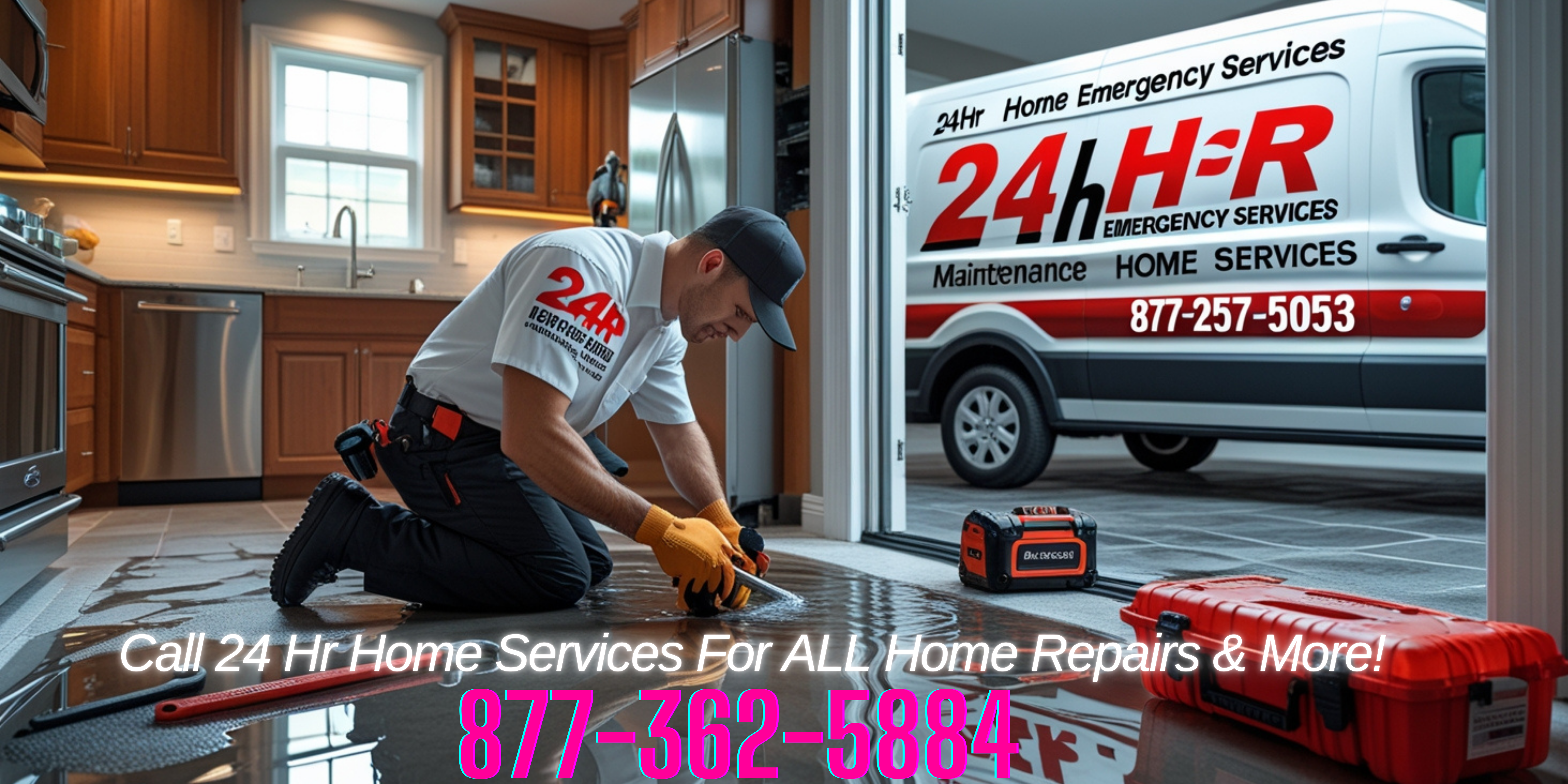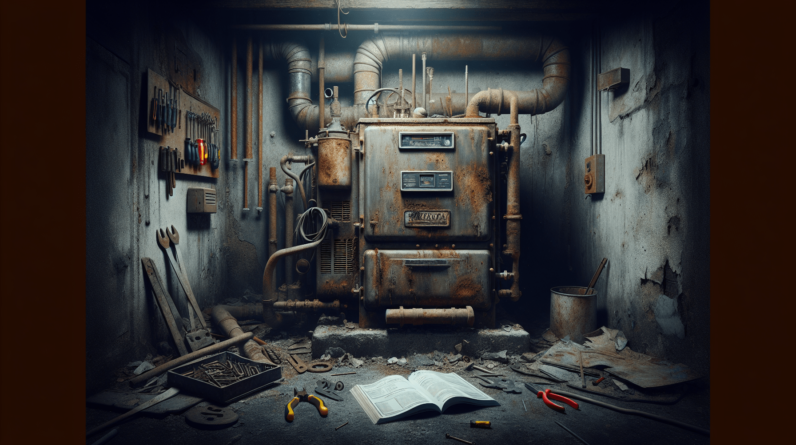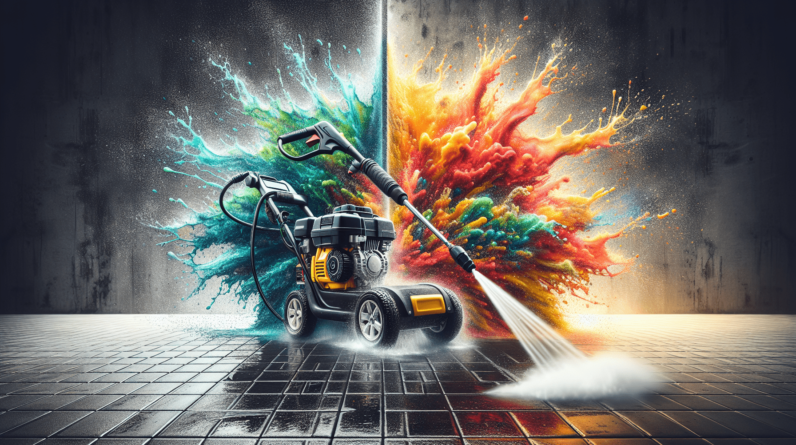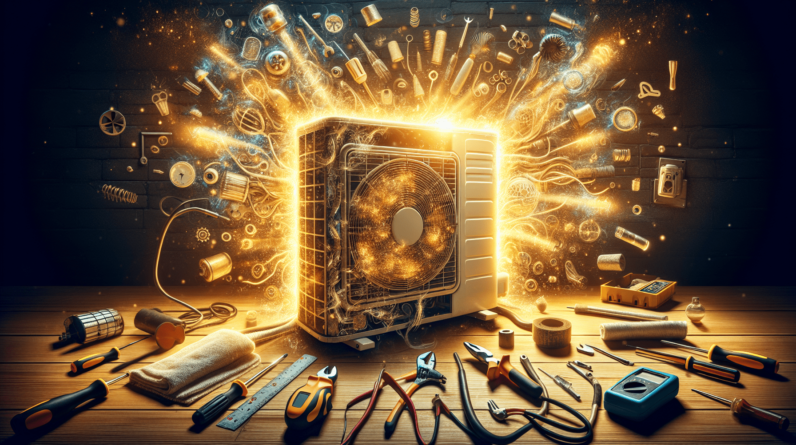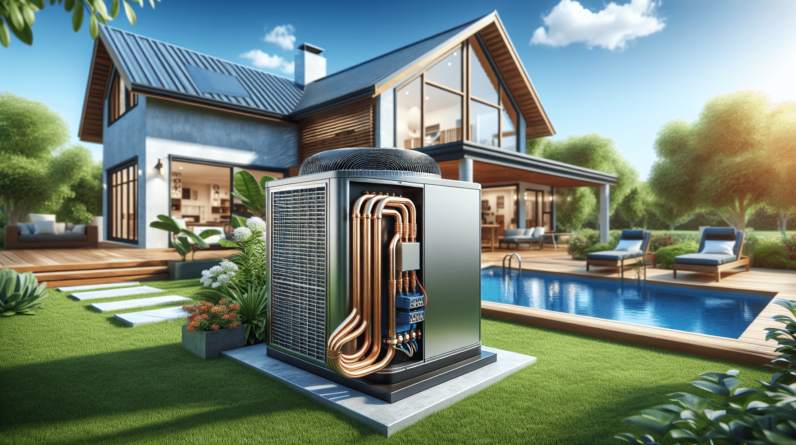
Have you ever wondered what it sounds like when a pipe is on the brink of bursting? Picture this: you’re going about your day when suddenly, you hear a strange, ominous noise echoing through your home. It’s a sound that sets your nerves on edge, leaving you with a sinking feeling in your stomach. In this article, we will unravel the mystery behind the sounds that fill the air before a pipe disaster strikes. So, get ready to grab your headphones and listen closely as we explore the eerie symphony of impending pipe doom.
Signs of a Bursting Pipe
Unusual Sounds
When it comes to plumbing issues, paying attention to the sounds in your home is crucial. Unusual sounds can be a strong indicator that a pipe is on the verge of bursting. While every house has its own unique sounds, it’s important to distinguish between the normal ones and those that indicate a potential problem.
Strange Smells
Another sign that a pipe may be at risk of bursting is the presence of strange odors in your home. If you notice a foul smell, especially near your plumbing fixtures or walls, it could be a sign of leaking pipes. The scent may be damp or musty, indicating the presence of water damage.
Low Water Pressure
Low water pressure can be frustrating, but it can also be a sign that a pipe is about to burst. If you’ve noticed a sudden drop in water pressure throughout your home, it’s essential to investigate the cause. While low water pressure can be attributed to various factors, such as mineral build-up or a faulty faucet, it can also indicate a potential pipe issue.
Leaks and Water Damage
Visible leaks or water damage are clear signs of a bursting pipe. If you notice water stains, mold growth, or wet spots on your walls, ceilings, or floors, it’s crucial to address the issue promptly. Ignoring these visible signs can lead to more severe damage, posing a threat to your home’s structural integrity and potentially causing harmful mold growth.
Different Types of Pipe Noises
Banging or Hammering Noise
One common pipe noise that hints at impending problems is the sound of banging or hammering. This noise usually occurs when a valve is suddenly shut off, causing a rapid change in water flow. The forceful momentum of the water can lead to pipes shaking and hitting against their surroundings. If you hear this noise, it’s essential to investigate further to prevent potential pipe bursts.
Rattling or Shaking Noise
If you’ve noticed a rattling or shaking noise coming from your pipes, it’s crucial to address it promptly. This noise is often caused by loose or unsecured pipes, causing them to vibrate against the surrounding structure. The constant shaking can weaken the pipes over time, increasing the risk of bursting. It’s vital to identify and fix any loose or improperly secured pipes to prevent potential damage.
Gurgling or Gurgle Noise
The sound of gurgling or a low rumble coming from your plumbing fixtures can be a sign of an issue with your drainage system. This noise is commonly associated with blocked or clogged pipes. When water encounters an obstruction, it tries to force itself through, resulting in gurgling sounds. Ignoring this noise can lead to worsening blockages and potential bursting if the pressure builds up too much.
Whistling or Squealing Noise
A high-pitched whistling or squealing noise can indicate a problem with your water supply pipes. This noise is often caused by excessive water pressure or a faulty valve. If the pressure becomes too high, it can put undue stress on the pipes, increasing the risk of a burst. Addressing this noise promptly is crucial to alleviate the pressure on your pipes and prevent potential damage.
Identifying the Source of the Sound
Water Supply Pipes
If you suspect the noise is coming from your water supply pipes, start by checking the main water valve. Ensure that it is fully open and functioning correctly. Excessive water pressure or a faulty valve can contribute to pipe noises, and adjusting the water pressure may alleviate the problem. If the noise persists, it’s best to consult a professional plumber to identify and address the issue.
Drainage Pipes
If the noise seems to be coming from the drainage system, check for any clogs or blockages in your pipes. Using a plunger or drain cleaner can often resolve minor clogs, but if the noise persists, it’s advisable to seek professional assistance. A plumber will have the necessary tools and expertise to identify and remove any stubborn obstructions, preventing potential bursting.
Water Heater
If the noise appears to be originating from your water heater, it could be a sign of sediment build-up. Over time, mineral deposits can accumulate at the bottom of the tank, causing it to make unusual sounds as it heats the water. Flushing your water heater regularly can help prevent sediment build-up and potential bursting. If the noise continues after flushing, it’s essential to have your water heater inspected by a professional plumber.
Home Appliances
Occasionally, pipe noises can be attributed to home appliances, such as dishwashers or washing machines. Vibrations from these appliances can travel through the pipes, causing them to make noise. Ensuring that your appliances are properly installed and secured can help alleviate these vibrations and reduce the risk of burst pipes.
Steps to Take When Hearing Pipe Noises
Shut Off the Water Supply
If you hear any concerning pipe noises, the first step is to shut off the main water supply. This will prevent any further water flow and minimize the risk of bursting. Turning off the water supply is particularly crucial if you notice any leaks or suspect a burst pipe.
Inspect the Pipes
Once the water supply is turned off, visually inspect your pipes for any visible signs of damage or leaks. Look for wet spots, discoloration, or bulging on the pipes. This visual inspection can help identify the source of the problem and guide your next steps.
Call a Professional Plumber
If you’re unsure about the cause of the pipe noises or if you’re unable to locate the source of the problem, it’s best to call a professional plumber. They have the expertise and tools to accurately diagnose the issue and provide the necessary repairs or replacements. Hiring a professional plumber ensures that the problem is addressed correctly and minimizes the risk of further damage or bursting pipes.
Address Water Damage
If you’ve experienced water damage as a result of leaking or bursting pipes, it’s crucial to take immediate action. Start by drying out the affected areas and removing any standing water. Use fans or dehumidifiers to aid in the drying process. To prevent mold growth, thoroughly clean and sanitize the affected areas. If the water damage is extensive, it may be necessary to contact a water damage restoration service to ensure proper mitigation.
Preventing Bursting Pipes
Insulate Pipes
One of the most effective ways to prevent bursting pipes is by insulating them. Insulating pipes helps maintain a consistent temperature, reducing the risk of freezing and subsequent bursting. Pipe insulation is readily available at most hardware stores and can be easily installed. Pay particular attention to pipes located in unheated areas, such as basements, attics, or crawl spaces.
Keep a Constant Temperature
Maintaining a constant temperature in your home can significantly reduce the risk of pipe bursts. During colder months, aim to keep your thermostat set to a consistent temperature, even when you’re away. This helps ensure that the pipes are adequately heated and less susceptible to freezing. Opening cabinet doors under sinks can also allow warm air to circulate around the pipes, further preventing freezing.
Drain Excess Water
To minimize the potential for bursting pipes, it’s essential to drain excess water from exterior faucets and sprinkler systems before the winter months. Disconnect and store garden hoses and ensure that any outdoor pipes are properly insulated. Draining excess water and protecting outdoor pipes from freezing temperatures significantly reduces the risk of bursts.
Properly Maintain Plumbing System
Regular maintenance of your plumbing system is crucial for preventing bursting pipes. Inspect your pipes periodically for any signs of wear, corrosion, or leaks. Keep drains clear and free from blockages by using drain screens and avoiding the disposal of grease, food scraps, or other debris. It’s also important to have your plumbing system professionally inspected and serviced on a regular basis.
Conclusion
Identifying signs of a bursting pipe early can help prevent significant water damage and costly repairs. Unusual sounds, strange smells, low water pressure, and visible leaks are all indicators that your pipes may be at risk. By understanding the different types of pipe noises and where they originate, you can take appropriate steps to address the issue. Shutting off the water supply, inspecting the pipes, and calling a professional plumber are essential actions to take when hearing pipe noises. Additionally, preventing bursting pipes through insulation, temperature maintenance, draining excess water, and proper plumbing system maintenance will help ensure the longevity and functionality of your home’s pipes. Remember, addressing pipe issues promptly is key to avoiding potential disasters and maintaining a healthy plumbing system.
